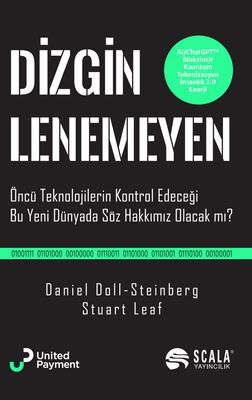Hakkında
An investor in the applications of powerful emerging technologies, Daniel believes these technologies are transforming our world—and our place in it. Daniel champions our collective responsibility in shaping our societal, financial, and environmental future and has lectured at University College London, Wharton Business School and WIPO. Starting his career in London and New York in the early days of the global derivatives technology industry, Daniel created one of the first digital rights management businesses, which helped transform the software and entertainment industries. In 2016, he was introduced to Blockchain and saw it accelerating AI in remodelling our economy. He co-founded the Atari Token Project to build a metaverse-based new economy platform with Atari, an Ethereum founder, and several gaming legends. He is a founding partner at the active innovation fund EdenBase. Daniel was appointed as an expert advising the UK Government and the European Commission, including during the crucial period following the 2007 financial crash, specializing in disruption, education, and the future of work.
Okurlar
4 okur okudu.
1 okur okuyor.
5 okur okuyacak.
Sözler ve Alıntılar
The opportunity for frontier technologies to improve humans through biological and technological enhancement and genetic engineering could well lead to a forced evolutionary bifurcation, which effectively creates two (or more) essentially different separate species, with a gap too enormous to jump by natural means. This would most likely consign all non-enhanced humanity to a permanently second-class future, dwarfing our current concerns of inequality between the haves and have-nots. Moreover, as genetic modifications are transferred to future generations, human (or possibly AI) design would inevitably limit the incredible randomness of natural evolution, the most primal form of innovation. Historically, conquering nations have added to the gene pool; natural disasters have eliminated genes. Many other seemingly random events have led to significant evolutionary changes. In Darwinian terms, there has been a continuous battle with only the fittest surviving. Engineered enhancements might well provide extraordinary improvements for the current environment. However, in the event of unexpected exogenous world changes, engineered solutions based on pre-programmed parameters, no matter how sophisticated and/or adaptable, might not be sufficient.
Sayfa 133Kitabı okudu
One of the most powerful tools to emerge is CRISPR, which, using an amalgam of technologies, allows scientists, with great speed and precision, to edit— even rewrite— genetic codes in a broad array of organisms. Clearly the potential for good is extraordinary— accelerating the cures for diseases such as cancer, heart disease, diabetes, Alzheimer’s, and numerous others. However, the ability to splice genes and make selective changes to otherwise healthy organisms to “improve” them raises an equal or greater number of concerns on practical, philosophical, and ethical grounds. Unlike integrating hardware and software into the human body, which disappears upon the death of the individual, the change of genetic sequencing can be passed from generation to generation and is, therefore, permanent.
Sayfa 131Kitabı okudu
It is important to note the Deep Web is often (incorrectly) used synonymously with the Dark Web; even ChatGPT recently made that error and then apologized when we called it out.
Sayfa 28Kitabı okudu
We cannot simply wait for the future to come to us. We might not like what we get.
Sayfa 281Kitabı okudu
A 2020 survey revealed moving to be slightly more stressful than divorce.
Sayfa 153Kitabı okudu
İletiler
Henüz kayıt yok
Yorumlar ve İncelemeler
Henüz kayıt yok

